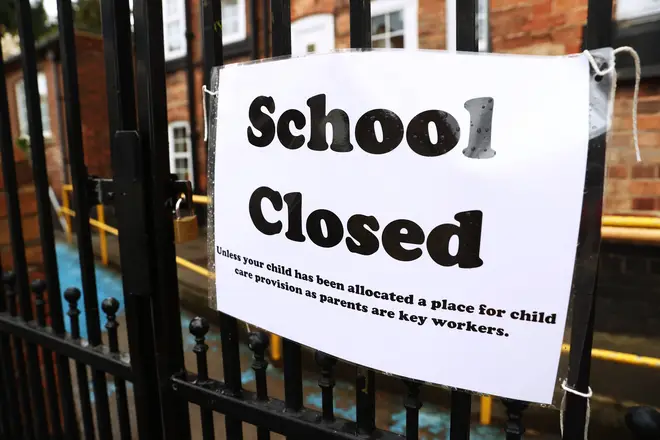
Shelagh Fogarty 1pm - 4pm
7 April 2020, 09:58

Closing schools has little effect on the spread of coronavirus and should be weighed against the damaging economic and social costs to children, a group of experts have said.
Scientists at University College London found that, while closures help to fight influenza, recent modelling suggests it could only prevent two to four per cent of coronavirus deaths.
The findings, published in The Lancet Child and Adolescent Health journal, were drawn from a review of 16 studies ranging from the current outbreak to the 2003 Sars epidemic.
They concluded that “the evidence to support national closure of schools to combat COVID-19 is very weak”.
All schools across the country shut their doors on March 20 indefinitely as part of a raft of social distancing measures that ultimately led to lockdown, and are not expected to reopen before September.
GCSEs and A-levels have been cancelled this year, with teachers instead tasked with grading pupils.
Professor Russell Viner, the lead UCL author, said: "Data on the benefit of school closures in the coronavirus outbreak is limited, but what we know shows that their impact is likely to be only small.
"Additionally, the costs of national school closures are high - children's education is damaged and their mental health may suffer, family finances are affected. Policymakers need to be aware of the equivocal evidence."
He urged ministers to consider a phased reopening of schools before the summer if it is safe, such as closing playgrounds, introducing part-time classes or reducing the school week.
But Prof Neil Ferguson, the Imperial College government scientific adviser whose modelling of the pandemic has guided Boris Johnson’s policy during the pandemic, said the Lancet study fails to recognise the broader effect of the curbs.
"When combined with intense social distancing it plays an important role in severing remaining contacts between households and thus ensuring transmission declines," he said.
It comes as the Royal Society creates a forum of disease modelling epidemiologists after Oxford University scholars published a paper questioning some of Prof Ferguson’s core assumptions.
Prof Robert Dingwall, professor of sociology at Nottingham Trent University, said: "This is an important study that confirms what many of us suspected, namely that the public health benefits of school closures were not proportionate to the social and economic costs imposed on children and their families.
"It also underlines how the assumptions used in modelling the pandemic may rest on very flimsy foundations in terms of scientific evidence.”
A Government spokesperson said: “Schools will remain closed until further notice, except for children of critical workers and the children who are most vulnerable. We will reopen schools when the scientific advice indicates it is safe to do so.”